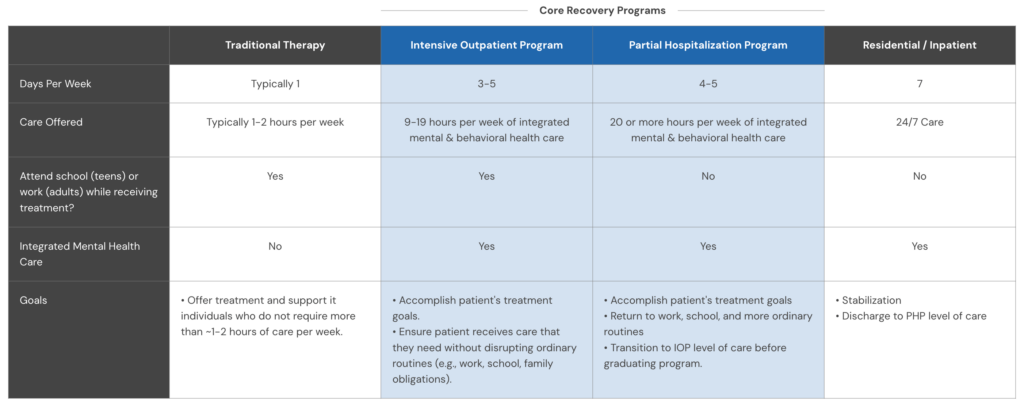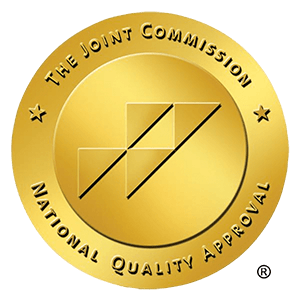What are IOP and PHP Programs?
Intensive Outpatient Programming (IOP) includes 9-19 hours per week of mental and behavioral health care, including 3 weekly group sessions as well as individual therapy, family therapy, and psychiatric sessions. Some patients, including patients struggling with eating disorders, will also meet regularly with a Registered Dietitian and participate in supported meals and meal planning.
Partial Hospitalization Programming (PHP) includes 20 or more hours per week of mental and behavioral health care, including 4-5 days per week of weekly group sessions, as well as individual therapy, family therapy, and psychiatric sessions. Some patients, including patients struggling with eating disorders, will also meet regularly with a Registered Dietitian to participate in supported meals and meal planning.
Who benefits from IOP and PHP programs?
IOP and PHP programs are designed to support individuals who need more support than weekly individual therapy appointments can provide but do not need to be hospitalized. They serve individuals who:
- Require more than weekly therapy sessions with a therapist or psychiatric provider.
- Require less than (or are discharging from) residential, hospital, or other inpatient facilities.
Core Recovery Programs |
||||
| Traditional Therapy | Intensive Outpatient Program | Partial Hospitalization Program | Residential / Inpatient | |
|---|---|---|---|---|
| Days Per Week | Typically 1 | 3-5 | 4-5 | 7 |
| Care Offered | Typically 1-2 hours per week | 9-19 hours per week of integrated mental & behavioral health care | 20 or more hours per week of integrated mental & behavioral health care | 24/7 Care |
| Attend school (teens) or work (adults) while receiving treatment? | Yes | Yes | No | No |
| Integrated Mental Health Care | No | Yes | Yes | Yes |
| Goals | • Offer treatment and support it individuals who do not require more than ~1-2 hours of care per week. | • Accomplish patient's treatment goals. • Ensure patient receives care that they need without disrupting ordinary routines (e.g., work, school, family obligations). |
• Accomplish patient's treatment goals • Return to work, school, and more ordinary routines • Transition to IOP level of care before graduating program. |
• Stabilization • Discharge to PHP level of care |






 In CA By O360®
In CA By O360®